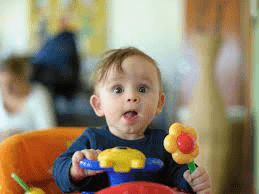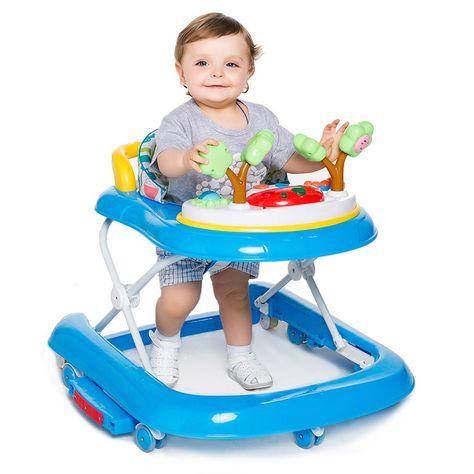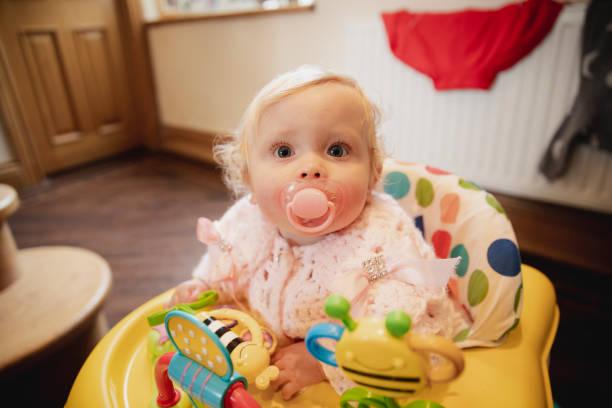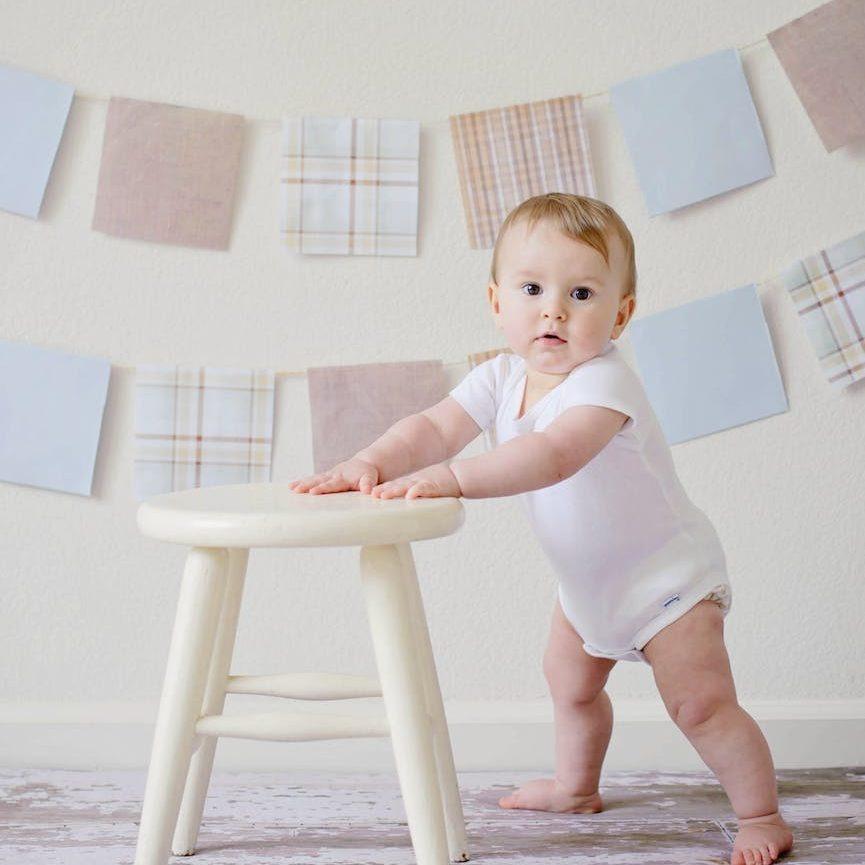
Key points from both sides of the debate are:
Arguments in favor of baby walkers:

Fun and exploration:
Baby walkers provide fun and allow infants to explore their surroundings freely. Some parents find that walkers can keep babies engaged and occupied while giving them a sense of independence. Baby walkers can provide a source of entertainment for infants, as they can move around and explore their surroundings more freely. Many baby walkers come with attached toys and activities, which provide extra stimulation for sensory development and cognitive engagement.
Stimulation of motor skills:
Proponents argue that walkers can stimulate the development of certain motor skills, particularly leg strength. Pushing against the floor and having the ability to move around can help develop muscles in the legs. While baby walkers may be subjective to use, some humanists believe they can offer stimulation for certain motor skills in infants. It is important to note that the safety of child protection against attack should always be considered, and their use should be supervised.
Early interest in walking:
Some parents believe that using a walker can stimulate an early interest in walking. Babies may enjoy the feeling of standing on their feet and moving, encouraging them to start walking early. Babies are naturally curious, and a baby walker allows them to explore their environment from an upright position, which provides a different perspective than crawling or sitting.


Convenience for parents:
Walkers can provide parents with an easy way to keep their children busy with other activities. This convenience is often cited as a reason for choosing to use a baby walker. Some people argue that using a baby walker can help strengthen leg muscles because babies push off the floor to move.
Arguments Against Baby Walkers:
Safety Concerns:
Safety is a major point of contention. Pedestrians have been linked to an increased risk of falls, injuries, and accidents. Children on foot can move quickly and gain access to areas that may not be safe. Toddlers can move quickly, and infants lack the coordination to navigate stairs safely. Falling down stairs is a significant hazard.


Developmental Alternatives:
Many child development experts recommend alternative methods for developing motor skills, such as tummy time, floor play, and interaction with age-appropriate toys. These methods are considered more beneficial and safer for overall development. Although baby walkers have been associated with safety concerns, there are alternative options that can promote the healthy development of an infant’s motor skills and be safely researched.
Injuries:
Finger and toe injuries:
Children can get their fingers or toes caught in the moving parts of the walker, causing injuries.
Burns:
Walkers can give babies access to hazards like hot stoves or electrical outlets, increasing the risk of burns or other injuries.
The ongoing discussion about the effectiveness and safety concerns of baby walkers centers on contrasting views within the parenting community. Critics argue that walkers may impede natural motor skill development, potentially leading to developmental delays. Safety concerns, including accidents and falls, have prompted organizations like the American Academy of Pediatrics to discourage their use. Detractors emphasize the importance of allowing infants to develop mobility naturally through crawling and cruising. They advocate for alternative devices, like stationary activity centers, that provide developmental benefits without the associated risks. While acknowledging the entertainment value of baby walkers, those against their use stress the importance of creating a safe environment that promotes natural exploration and development, advocating for alternatives that align with current safety recommendations and parenting philosophies.
As discussions persist, parents are encouraged to stay informed, consider alternative options, and prioritize safety in their choice of developmental aids. While baby walkers may provide entertainment, their effectiveness in promoting healthy development should be weighed against potential risks and in alignment with contemporary parenting recommendations.
Frequently Asked Questions ( FAQs )
Do baby walkers promote fun and exploration for children?
Yes, baby walkers can provide a source of entertainment and allow children to explore their surroundings freely. They are possibly promoting a sense of independence while keeping them busy and engaged.
Can baby walkers stimulate the development of motor skills?
Baby walkers can stimulate certain motor skills, proponents say. Especially the strength of the legs when children push from the floor and move around. However, it is important to monitor their use for safety.
Do baby walkers stimulate an early interest in walking?
Some parents believe that using a baby walker can stimulate an early interest in walking. Because children enjoy the feeling of standing up and moving, it can provide a different perspective than traditional crawling or sitting.
Baby walkers are easy for parents?
Yes, baby walkers can provide parents with an easy way to keep their children busy with other activities. This could facilitate them in managing their daily routines.
What safety concerns are associated with baby walkers?
Safety concerns include an increased risk of falls, injuries, and accidents, as well as the possibility of finger and toe injuries or access to hazards such as hot stoves or electrical outlets.
Conclusion
Finally, the debate around baby walkers revolves around conflicting viewpoints. Advocates highlight potential benefits such as fun, exploration, and stimulation of motor skills, Emphasizing their role in the development of early walking and the facilitation of parents. However, critics raise safety concerns by advocating alternative methods such as abdominal time and floor play to promote the development of natural mobility. The key lies in informed decision-making by parents. In which both the benefits and risks of baby walkers are weighed and safety is prioritized according to the current recommendations of parents.
